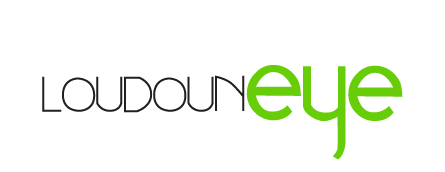Did you know that myopia, often referred to as nearsightedness, has grown as much as 28% worldwide over the last decade? In an age dominated by screens and changing lifestyles, understanding how lifestyle factors impact myopia is vital. From childhood myopia to the importance of eye exams for kids, let's delve into the connection between myopia management, lifestyle choices, and how to keep your kid's vision healthy.
Understanding Myopia
Myopia is a refractive error that causes distant objects to appear blurry while close objects can be seen clearly. It occurs when the eyeball grows too long or when the cornea becomes too steep, causing light to focus in front of the retina instead of directly on it. This condition often develops during childhood and adolescence, and the severity of myopia varies from mild to high.
There has been a significant increase in the number of people suffering from myopia across the world, which has become a cause for concern. This surge is particularly noticeable in urban areas and among the younger generation, who are exposed to screens for prolonged periods and engage in less outdoor activities. As a result, there has been an uptick in research and initiatives aimed at identifying the root causes of this trend and developing effective strategies to manage it.
Why Is Myopia Management Important?
Myopia isn't just a minor inconvenience; its progression can lead to various eye health issues. High levels of myopia are associated with an increased risk of conditions like retinal detachment, glaucoma, and even vision loss. Early intervention and effective management are crucial to mitigate these risks and ensure long-term eye health. Parents and caregivers can take proactive steps to preserve their children's vision and prevent potential complications by focusing on myopia management.
How Lifestyle Factors Can Help
Did you know that small adjustments to daily routines can significantly impact your child's eye health? From nutrition to outdoor playtime, various lifestyle factors play an important role in myopia management and prevention.
Nutrition and Eye Health
A balanced diet rich in essential nutrients benefits children's overall health and plays a vital role in supporting their vision. Antioxidants like vitamin C, E, and zinc have been associated with reduced risk of eye conditions, including myopia. Incorporating foods like leafy greens, colorful fruits, and omega-3 fatty acids from sources like fish can also contribute to healthier eyes.
Outdoor Time and Natural Light Exposure
Spending time outdoors has been linked to a lower risk of myopia progression, particularly in children. Natural sunlight balances light intensity and wavelengths that support proper eye development. Encouraging children to engage in outdoor activities can help them receive the benefits of natural light exposure and reduce the risk of myopia development.
Digital Devices and Screen Time
In today's digital age, excessive screen time has become a concern for eye health. Prolonged use of digital devices can contribute to digital eye strain and may exacerbate myopia progression. To alleviate eye strain and reduce the potential impact of screen time on myopia, try to follow the 20-20-20 rule. This means taking a 20-second break every 20 minutes to look at something 20 feet away.
Improve Their Reading Habits
Maintaining appropriate reading habits can also play a role in myopia management. Adequate lighting and maintaining a proper reading distance from the material can reduce eye strain and help prevent myopia.
The Role of Physical Activity
Regular physical activity positively impacts your children's overall health, including their eye health. Engaging in physical activities enhances blood circulation, which can benefit children's eye health by providing the necessary nutrients and oxygen to the eyes.
The Importance of Eye Exams
Regular eye check-ups are essential for monitoring eye health and early identification of vision issues. Myopia progression can be monitored through regular visits to an eye care professional, allowing for timely interventions if needed.
Create a Myopia-Friendly Environment
Incorporating certain changes into daily routines can contribute to a myopia-friendly environment. Adjusting lighting conditions, ensuring proper seating and screen placement, and setting screen time limits can collectively support your children's eye health.
Limit Near Work Activities
Prolonged engagement in near-work activities, such as reading and using digital devices up close, can strain the eyes and potentially contribute to myopia progression. Balancing near work with outdoor activities and frequent breaks can help reduce eye strain.
Enhance Your Kids' Eye Well-being with Loudoun Eye Associates in Ashburn
Maintaining healthy lifestyle habits is key to effective myopia management. However, personalized guidance from an eye care professional is essential. If you're seeking assistance with myopia management or have concerns about your children's eye health, we invite you to visit Loudoun Eye Associates in Ashburn.
Our experienced team can provide tailored advice and recommendations for your children’s individual needs. Don't wait — take the first step towards preserving their vision today.



